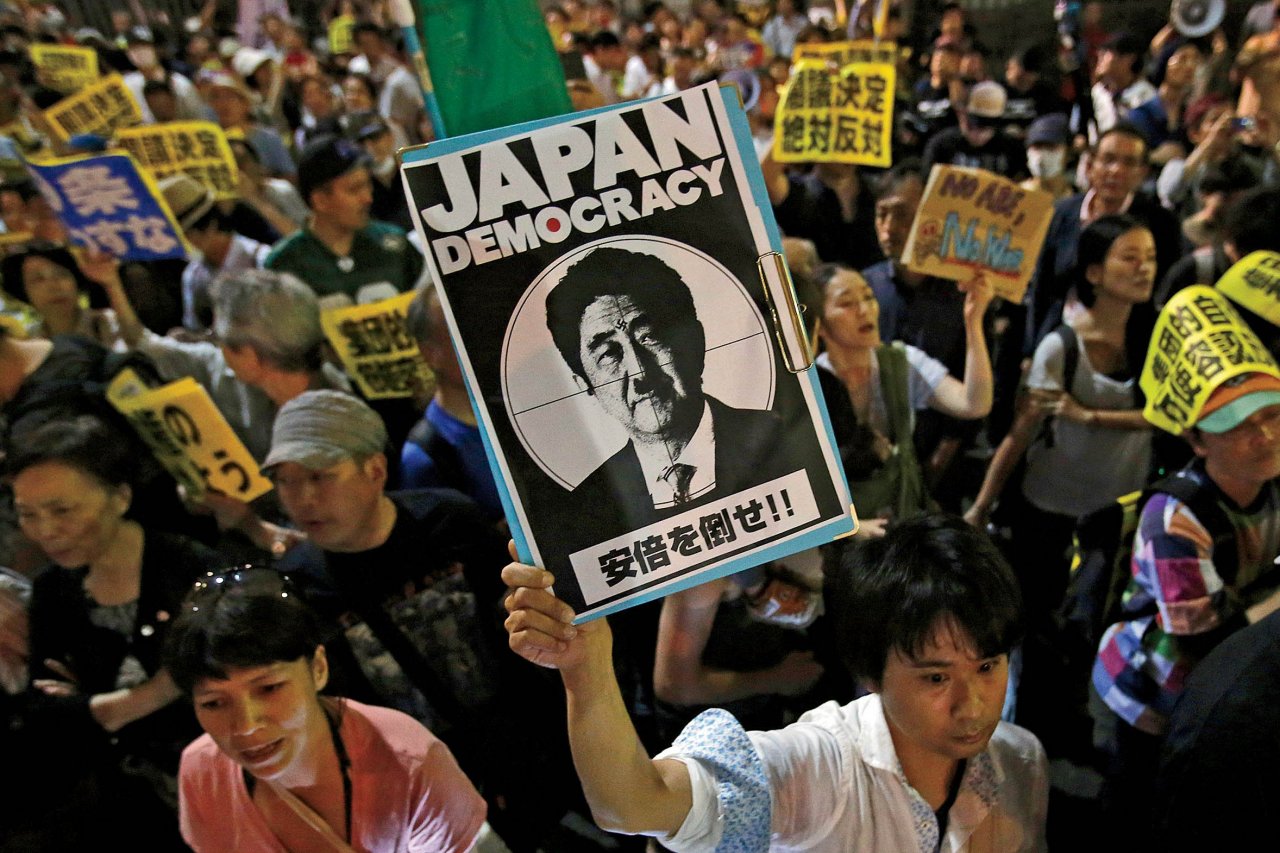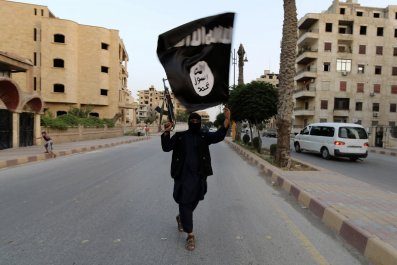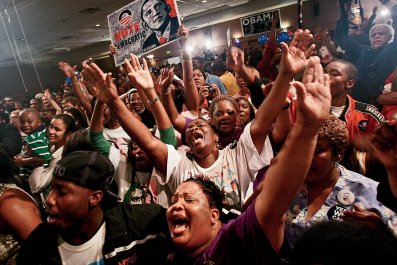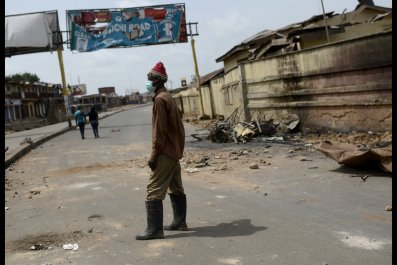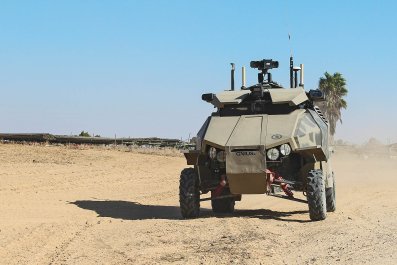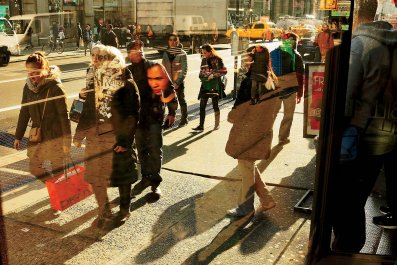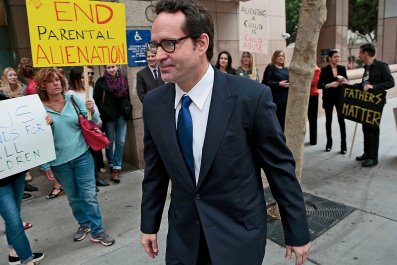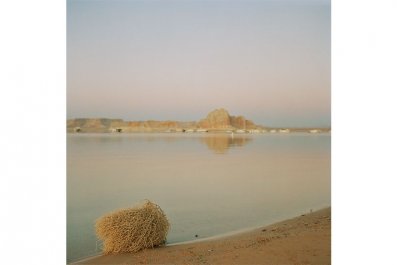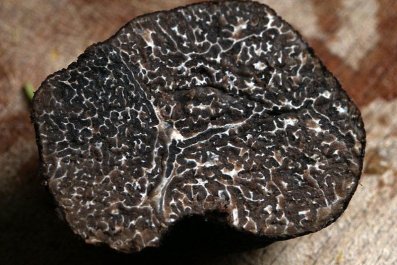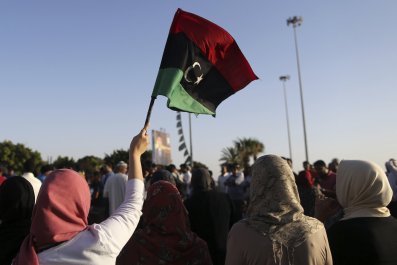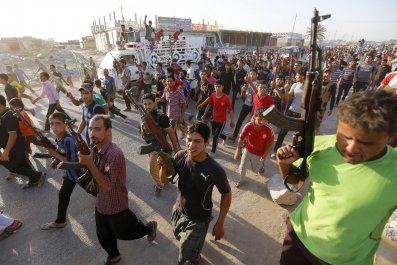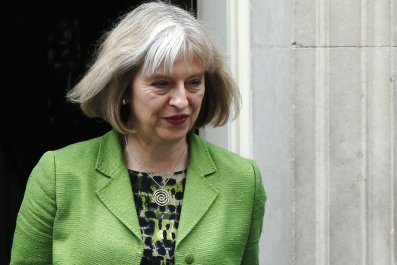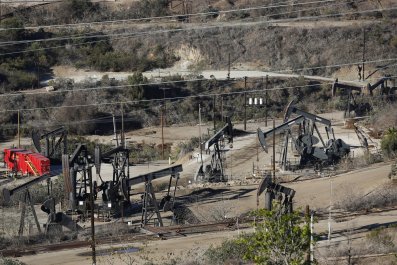In February 1946, just six months after two atomic bombs leveled the cities of Hiroshima and Nagasaki, ending World War II in the Pacific, the General Headquarters of the Allied forces in Tokyo—at the initiative of its leader, General Douglas MacArthur—quietly put forward an idea so radical that upon its adoption nine months later, some conservative Japanese cabinet members "wept openly," as the historian John Dower wrote in his Pulitzer Prize–winning 1999 book, Embracing Defeat.
MacArthur had insisted that Japan adopt a "peace constitution." In its preamble it forthrightly renounces war, and in its famous "Article 9" the country formally commits itself to a pacifist course. The military constraints thus placed on Japan have for six decades always angered the more hawkish members of Japan's ruling Liberal Democratic Party.
Over the years, as Japan boomed economically, men like former Prime Minister Nobusuke Kishi have tried to boost Tokyo's military without violating the constitution. Thus, in 1960—in the face of bitter opposition from the Japanese left (then a much more potent force politically than it is today)—Kishi struck the U.S. Japan Security Treaty with Washington, binding Tokyo to an active role in self-defense during the Cold War.
Today, Nobusuke Kishi's grandson, Shinzo Abe, is the prime minister of Japan, and he, too, is a hawk. And on July 1, he followed, in his own way, in his grandfather's footsteps: He committed his cabinet to a "reinterpretation" of the peace constitution that will allow Japan to send troops and equipment to aid allies in times of war. "You can't build a pacifist country just by preaching the phrase," Abe said at a press conference. "I believe we owe it to efforts by our forebears who acted boldly in the face of changes in the international environment."
The move had little to do with pacifism, and critics seized on Abe's remark as the plainest evidence available of the hawks' hypocrisy when it comes to the constitution. But Abe was undeniably right in indicating that the move comes amid real changes in the balance of power in Asia. Specifically, a rising China (with the increasing defense budgets to go along with its economic ascent) has begun to throw its military weight around in its own neighborhood.
Beijing is in a persistently tense standoff with Tokyo over disputed islands in the East China Sea that the Japanese call the Senkakus and which the Chinese claim as the Diaoyutai. It muscled the Philippines in a dispute over another set of islands in the South China Sea, called the Scarborough Shoal. And it recently moved a massive offshore oil-drilling rig into waters off the coast of Vietnam, to the fury of Hanoi.
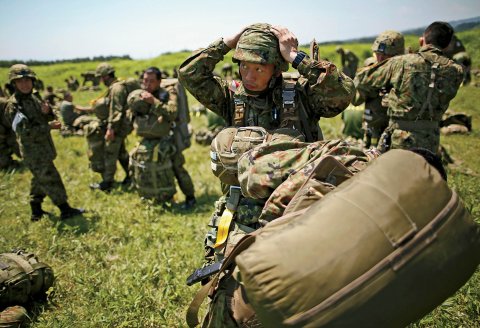
During the Cold War and since, the Pacific has been, militarily and geopolitically, an "American lake." But China's rise coincides with uncertainty about what role Washington, Japan's security guarantor, will play going forward. President Barack Obama has trumpeted a strategic "pivot" to Asia—and away from conflicts in the Middle East—but thus far that shift has been more rhetoric than reality.
In truth, America's defense budgets are under pressure, and Obama plainly has no stomach for military engagements that can in any way be avoided. Only Beijing's constant pressure on the Senkakus—and its higher military profile in the region more generally—prompted the president to stand next to Abe on April 24 and say the U.S. would live up to its treaty obligations and defend Japan in case of a conflict over the islands. (The U.S. had hoped to keep a fair distance from the conflict for fear of angering Beijing.)
Beijing, in the form of a piece in the state-owned Xinhua news service, predictably labeled Abe's "reinterpretation" as "dallying with the specter of war." But China wasn't the only neighbor watching closely. South Korea, occupied for decades by Japan until the end of the war—and with whom relations are, at best, cool—responded by simply saying that Tokyo could not send military aid to Seoul "without an invitation." Coincidentally, South Korea was preparing to host Chinese President Xi Jinping on a state visit—the first time a People's Republic of China president, on a visit to the Korean Peninsula, will go first to South Korea and then North Korea, Beijing's only formal ally by treaty.
Still, the overall security environment in East Asia makes Abe's move less controversial than it otherwise might have been. And for that, Beijing can only blame itself. In remarks delivered on June 30, Australian cabinet minister Malcolm Turnbull—a key ally of Prime Minister Tony Abbott—offered a scathing (and mostly correct) review of what China's behavior in the region has wrought.
Calling Beijing out for "muscling up" to each of its neighbors, he said its current foreign policy is "curiously counterproductive." It "really is extraordinary," he added, "to see the Vietnamese being pushed closer and closer to the United States in strategic terms. That's quite an achievement for viewers of history."
The increasing nervousness about Beijing in the region has meant that World War II–fueled wariness of Japan (stoked, to be sure, by Tokyo's less than heartfelt apologies for war crimes, as well as the visits Abe and his cabinet have made to the controversial Yasukuni shrine, where the remains of convicted war criminals are interred) has begun to fade, at least relatively. Had Beijing been more restrained in its behavior in the East and South China seas, Abe's announcement would have been more controversial in the region. "There's no question about it," says one Western ambassador in Beijing.
Instead, today Tokyo and Canberra are rapidly ratcheting up their defense cooperation, and Philippine President Benigno Aquino said, in the wake of Abe's July 1 announcement, that "nations of good will can only benefit if the Japanese government is empowered to assist others." As recently as the 1990s, it was pretty much unthinkable that the leader of the country that was home to the infamous, Japanese-led "Bataan Death March" during the war would say such a thing.
Still, remember: Amid the dangerous flux now evident in East Asia, one thing that does not appear to be changing very much is the wariness of the Japanese people themselves regarding any significant change to their constitution. This was Abe's second bite at the constitutional apple.
When he was prime minister in 2006, he sought to formally amend the constitution, not just "reinterpret" it, to allow Japan to come to the aid of allies under attack. That was so unpopular, it helped cut short his time in office. This time, three separate polls in Japanese newspapers showed an outright majority opposing the reinterpretation, with just one-third or fewer of the respondents approving.
That the Japanese people still like—and seek to maintain—their foreign-imposed "peace" constitution is, in its own way, remarkable. An awful lot of people, both inside and outside the country, believed that Tokyo, under pressure to become a "normal" nation, would someday cast the constitution aside. Indeed, it had long since become a trope of the left that the constitution would someday be rewritten.
"A perilous debate has emerged in Japan over whether it isn't time to jettison [it]" wrote Japanese-American author Norma Field in her 1990 book,In the Realm of a Dying Emperor. Such a path would be perilous, she believed, because those who sought to maintain it would be "outnumbered" by those who want to replace it with the reality of a powerful army, navy and air force.
Japan today has a modern, powerful army, navy and air force. But it also still has its constitution, which—as Abe, the most hawkish prime minister since his grandfather, understands—will continue to constrain Tokyo's deployment of military force, even with the "reinterpretation" of July 1.



